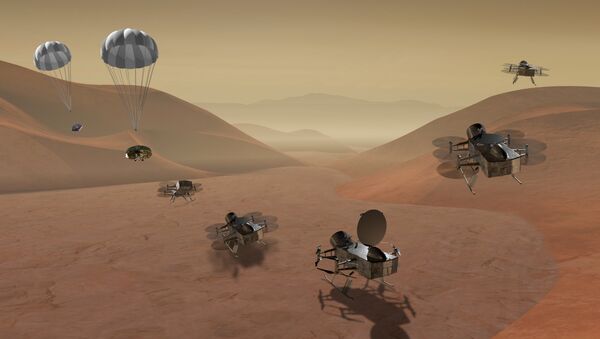The robot created within its framework will be called Dragonfly. This device will be equipped with folding propellers, which will allow it to break away from the surface of Titan and take to the 'air', enabling it to travel hundreds of kilometers to locations that interest scientists. In addition, the robot will be equipped with specialized sensors for detecting organic substances of various types and other scientific equipment.
READ MORE: Better, Faster, Stronger: Scientists Genetically Engineer ‘Super Horses'
The flight will be possible due to Titan's dense atmosphere. After arriving on Saturn's largest moon, "Dragonfly" will study the features of its structure. In particular, scientists hope to find out whether the assumption is true that under the frozen ice crust on Titan there is a large amount of liquid water (this is, in fact, the ocean).
USA: "NASA Invests Concept Development For Missions To Comet And Rotorcraft (Dragonfly) For Saturn Moon Titan". NASA reporting: https://t.co/IJDtuPKYO6 pic.twitter.com/UaYlO1fqer
— Helicopter Links (@HelicopterLinks) December 28, 2017
This would already constitute an environment where life could exist or at least separate elements of life. This was stated by Elizabeth Turtle, a researcher from the Johns Hopkins University. With the help of Dragonfly, experts will be able to assess what is happening with the organic circulation on Titan now and what happened in the past.



